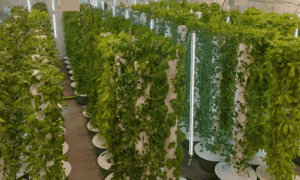In the ever-evolving landscape of agriculture, agrichemicals have emerged as indispensable tools that contribute significantly to the success of modern farming practices.
From fertilizers that enhance soil fertility to pesticides and herbicides that protect crops from pests and diseases, these chemical inputs play a vital role in ensuring food security, increasing yields, and promoting sustainable agricultural practices.
1. Enhanced Crop Yields
Agrichemicals, particularly fertilizers, are instrumental in providing essential nutrients that promote robust plant growth. Nitrogen, phosphorus, and potassium, among other nutrients, are crucial for plant development. Fertilizer application allows farmers to tailor nutrient levels in the soil, addressing deficiencies and optimizing conditions for crops. The result is increased crop yields, a key factor in meeting the rising global demand for food.
2. Pest and Disease Management
Pesticides and herbicides are champions in protecting crops from the relentless assault of pests and diseases. Without effective pest management, farmers face the risk of significant crop losses, threatening food production and economic stability. Agrichemicals enable farmers to control pests selectively, minimizing damage to crops and ensuring a bountiful harvest.Agrichemicals provide farmers with tools to mitigate the impact of adverse weather conditions. During periods of drought or excessive rainfall, adjustments in fertilizer application can help crops withstand stress and maintain optimal growth. This adaptability is essential for farmers facing the unpredictable challenges of climate change.
3. Improved Nutrient Management
The precise control over nutrient levels provided by agrichemicals contributes to efficient nutrient management. This targeted approach not only boosts crop yields but also minimizes waste and reduces environmental impact. Modern farming practices leverage technology to precisely apply fertilizers, promoting resource efficiency and sustainability.
4.Time and Labor Efficiency
Agrichemicals contribute to increased efficiency in farming operations. With the use of herbicides, farmers can control weed growth, reducing the need for manual weeding and saving valuable time and labor. This efficiency is crucial, especially in large-scale agricultural operations where time-sensitive tasks can determine the success of the harvest.
5. Weather Mitigation
Agrichemicals provide farmers with tools to mitigate the impact of adverse weather conditions. During periods of drought or excessive rainfall, adjustments in fertilizer application can help crops withstand stress and maintain optimal growth. This adaptability is essential for farmers facing the unpredictable challenges of climate change.
6. Global Food Security
The benefits of agrichemicals extend beyond individual farms to global food security. As the global population continues to grow, the demand for food rises. Agrichemicals enable farmers to produce more food on existing arable land, helping to meet the nutritional needs of a growing population.
Wrapping Up
In conclusion, agrichemicals have revolutionized modern farming, providing farmers with the tools they need to navigate the challenges of a dynamic agricultural landscape. From increasing crop yields and managing pests to promoting efficient nutrient use, these chemical inputs are integral to the success and sustainability of contemporary agriculture.
While acknowledging the concerns related to environmental impact and human health, it is essential to strike a balance that allows for the responsible use of agrichemicals, ensuring that they continue to be valuable assets in the pursuit of global food security and agricultural prosperity. As technology advances and sustainable practices evolve, agrichemicals will remain key players in the ongoing story of agricultural innovation and productivity.



































